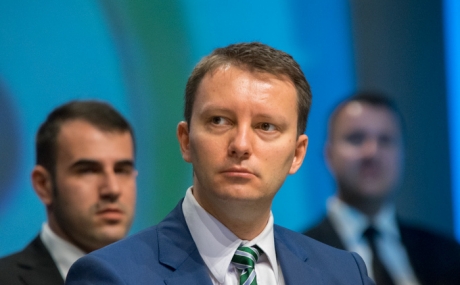Muresan: The Spanish government will be a supporter of Romania’s accession to Schengen, regardless of election outcome.
Romania will have in the government of Spain a supporter of its accession to the Schengen area regardless of the result of the early elections there, National Liberal Party (PNL) MEP Siegfried Muresan told AGERPRES on Wednesday.
“On July 1, Spain takes over the rotating presidency of the European Union and I have seen there highly favourable statements and active support from Spanish officials. Although early elections will be held in Spain on July 23 and a change of government – the centre-right pro-European party won by a wide margin the regional elections two weeks ago and will probably win the general election as well – the good news is that in Spain, on issues related to European affairs, there are no differences in position between the outgoing centre-left party and the centre-right party that will take over,” Muresan told AGERPRES in a phone interview.
“So Romania will have a supporter in the Spanish government, regardless of the result of the general election there,” he added.
Asked if he tried to talk with the Spanish MEPs from the Popular Party who are affiliated with the European People’s Party (EPP), of which he is the vice-president, in order to receive assurances that they will also support Romania’s accession to the Schengen area, Muresan said he did “this very week.”
He added that in terms of foreign policy, Spain has always been a predictable, pro-European member state of the European Union, with continuity in foreign policy.
He called a right one Romania’s decision not to have the subject of accession on the agenda of the Justice and Home Affairs (JHA) Council meeting before the last holdout, Austria, changes course.
“We are now implementing all these pilot projects at Romania’s external border, including for the satisfaction of this last holdout. As soon as this last resisting state withdraws its objection, the matter will be on the agenda,” said Muresan.
In the meantime, he added, Romania’s desideratum enjoys full support in the political group he belongs to, the EPP, with one exception.
“On any occasion, all the leaders of the EPP, the member parties, all with one exception, voice their support, the only exception being the party of the Austrian chancellour, the only one of the three Austrian parties that are against it,” said Muresan in connection to the Austrian Socialist Party and the far-right formation.
“So it is an Austrian problem, it is not a centre-left or centre-right problem; it is not even a bilateral problem between Austria and Romania, it is a domestic Austrian problem generated by the fact that in Austria there is a problem with migration. But Romania is not the cause of their problem.”
Muresan went on to say that Romania has very clearly announced that it will support any European measure that contributes to the management of the migration flow, but that in Austria the issue of migration – which is real in Austria – continues to be unfairly mixed with the expansion of the Schengen area.
Regarding Romania’s accession this year, a stated objective of both the European Commission and the Romanian officials managing the issue, Muresan says that “the time is favourable” and the intention “justified,” including the fact that the number of migrants that entered Austria is now reduced as against one year ago.
Asked if a failure of Romania’s accession to Schengen in 2023 would be a tragedy, Muresan replied that “it would be the perpetuation of an injustice and an incorrect gesture towards Romania.”

